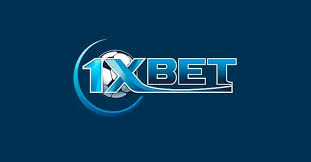sports betting Smart Strategies, Analytics, and Responsible Play
Sports betting has evolved into a sophisticated discipline that blends statistical analysis, psychological discipline, and market understanding. Whether you are a casual fan placing the occasional wager or a serious punter building a model-driven approach, the landscape offers both opportunity and risk. For players exploring ancillary entertainment options, consider reputable platforms like sports betting casino 1xbet for regulated casino products — but always prioritize licensed providers and responsible play.
At its core, successful sports betting rests on finding value. Value betting means identifying situations where the probability you assign to an outcome is greater than the implied probability expressed by the bookmaker’s odds. To do this consistently, bettors must build an information advantage: detailed statistical models, deeper knowledge of teams and players, superior injury and lineup tracking, or faster access to lines before they adjust. Simple tips and gut feelings rarely outperform disciplined, quantitative approaches over the long run.
Bankroll management is the foundation upon which every other strategy is built. Define a dedicated betting bankroll separate from personal savings and living expenses. Use staking strategies such as flat bets, percentage staking (e.g., 1–3% of your bankroll per wager), or the more conservative Kelly Criterion to optimize bet sizes relative to estimated edge. Avoid chasing losses with larger stakes; volatility is inherent in betting and even the best strategies experience losing streaks.
Modern bettors increasingly rely on data analytics. Publicly available statistics are abundant: player metrics, advanced team analytics, situational trends, and historical matchup data. Successful models account for sample size limitations and overfitting risks. Combine quantitative models with qualitative insights — coaching changes, weather effects, travel schedules, and locker-room dynamics can influence outcomes in ways raw numbers may not immediately capture.
Understanding the markets is equally important. Different bookmakers offer different lines, and shopping for the best odds is one of the simplest yet most effective ways to increase long-term profitability. Use multiple accounts to take advantage of discrepant lines. Learn about market types: point spreads, moneylines, totals (over/under), handicaps, futures, prop bets, and exchanges. Each market has its own liquidity, vig (bookmaker commission), and susceptibility to sharp or public money.

Live or in-play betting introduces new dynamics: odds move rapidly as events unfold, creating both opportunities and hazards. Bettors who thrive in live betting often have lightning-fast information processing and disciplined reaction strategies. Look for mismatches between how bookmakers adjust lines and the actual on-field probabilities. However, in-play betting demands strict limits to avoid impulsive wagering driven by emotional highs or lows during a game.
Odds formats vary by region and platform: decimal, fractional, and American (moneyline) are the most common. Understand how to convert these formats and calculate implied probabilities. Subtract the bookmaker’s margin to estimate the fair market probability. Tools and calculators can streamline this process and help you identify value across formats and sportsbooks.
One advanced but high-effort strategy is arbitrage betting, which exploits price discrepancies across bookmakers to guarantee a profit regardless of outcome. Arbitrage opportunities are rare and often short-lived, and they require substantial capital, quick execution, and multiple accounts with trusted bookmakers. Additionally, bookmakers may restrict or limit accounts suspected of consistent arbitrage, so be mindful of account management practices.
Another approach is matched betting, which leverages promotional offers to secure almost risk-free returns. While not scalable indefinitely, matched betting is a pragmatic option for beginners to build betting capital without taking directional risk on sports results. Keep careful records of qualification and settlement requirements to avoid accidental exposure.
Psychology plays a pivotal role. Cognitive biases — confirmation bias, recency bias, the gambler’s fallacy — can erode disciplined strategies. Establish clear rules and a written betting plan: entry criteria, stake sizing, stop-loss limits, and review processes. Regularly audit your results to identify strengths and weaknesses. Emotional discipline is often the differentiator between short-term lucky streaks and sustainable profitability.

Responsible gambling should be non-negotiable. Set deposit and loss limits, use self-exclusion tools if needed, and never gamble with money designated for essential expenses. Recognize signs of problem gambling — preoccupation, chasing losses, lying about activity — and seek help from professional resources if necessary. The goal is to keep betting an entertaining and controlled activity rather than a source of harm.
Specialization can boost success. Focus on a few leagues, markets, or bet types where you can develop expertise. Niche markets — lower-visibility leagues or specific prop markets — sometimes present more inefficiencies and less professional scrutiny. By concentrating your research, you increase the likelihood of discovering edges that generalists miss.
Technology and automation are reshaping the field. Many bettors use APIs, scraping tools, and betting exchanges to automate value detection and bet execution. While automation can improve speed and consistency, it also requires maintenance, error handling, and ongoing model validation. Start with manual systems and incrementally automate reliable processes.
Legal and regulatory environments matter. Ensure you understand local laws regarding sports betting, taxation, and bookmaker licensing in your jurisdiction. Play on regulated platforms that adhere to consumer protections, fair play, and transparent dispute resolution mechanisms. Unregulated operators might offer higher odds but carry greater counterparty risk.
Finally, continuous learning is essential. Read industry analyses, follow respected handicappers critically, and test new hypotheses with small stakes. Keep detailed logs of every wager — date, market, odds, stake, rationale, and result — to learn from successes and mistakes. Over time, disciplined bettors develop a personal edge that reflects their unique blend of analytics, experience, and market awareness.
Sports betting is a dynamic mix of skill, discipline, and luck. Treat it as a long-term endeavor: manage your bankroll intelligently, seek measurable edges, control emotions, and prioritize responsible play. With the right mindset and methods, bettors can transform sporadic wagers into a structured hobby or even a profitable activity while minimizing harm and maximizing enjoyment.


